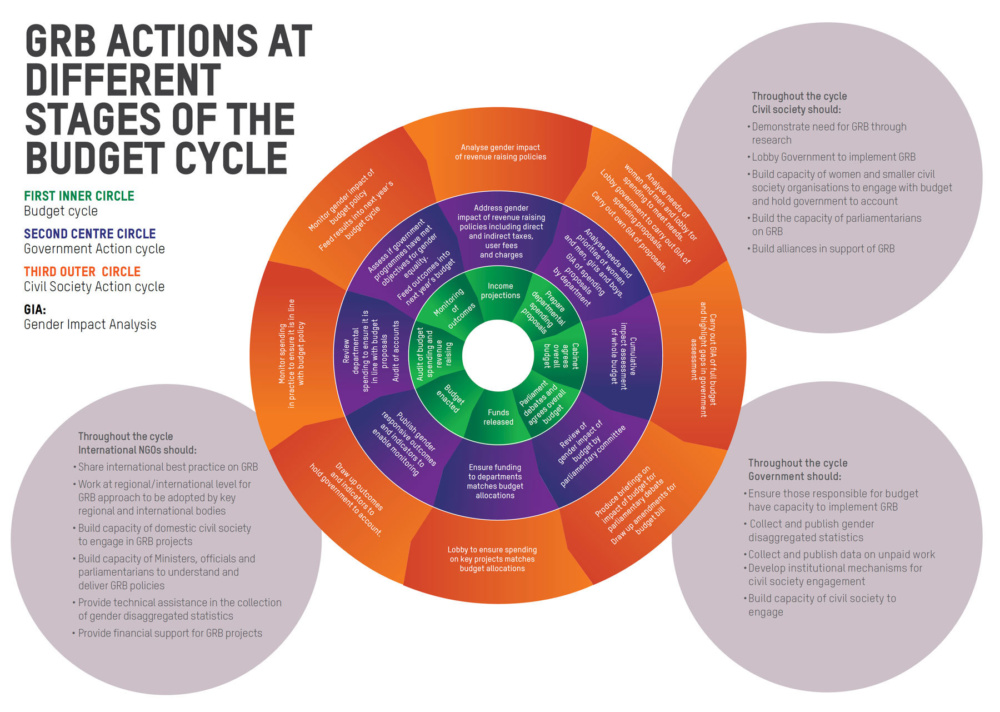Civil society groups working on gender responsive budgeting generally start with a focus on a particular stage in the budget cycle, or a particular policy issue. One of the first tasks is to find out about the budget cycle. The chart below was developed by WBG in partnership with Oxfam and shows an example of a ‘typical’ budget cycle with possible actions at different stages.

In practice the budget cycles in all countries will be different. Some countries may work on a three or five-year plan, which may be amended every year. Local or regional government will have different levels of power to raise taxes and decide spending priorities in different countries.
Mapping out the budget cycle will help you think through where you have the most opportunities for impact. Your activities will depend on the context in which you are working but could include:
Research and analysis into:
- The likely or actual impact of the budget (or other economic policy decisions).
- The likely or actual impact of policy in a specific area (for example spending on health).
- Whether actual spending on services matches budget commitments.
The needs of women and men, girls and boys and the spending required to meet those needs.
Using the findings of research and analysis to:
- Advocate for changes to policy/practice across government or within a specific department.
- Highlight the need for national, regional or local government to carry out their own analysis.
- Inform the work of women’s voluntary organisations.
- Inform work of parliamentarians in holding government to account.
Capacity building:
- Providing expert advice and training to civil servants or elected officials wishing to carry out gender responsive budgeting.
- Working with back bench politicians to build their capacity to hold local or national government to account.
- Building the capacity of women and smaller civil-society organisations to engage with the budget process and hold government to account.
The initial focus of the UK Women’s Budget Group was the annual budget speech to parliament made by the Chancellor of the Exchequer. This is a high-profile occasion that attracts a great deal of media and political attention. The initial aim of the WBG was to ensure that public debate about the impact of the budget on different groups included discussion of the budget’s gender impact. To further such debate, members of the group would meet to discuss the likely impact of the budget on women and produce a written analysis.
At this point the group was an entirely unfunded network, relying on the voluntary expertise of members. In the early 2000s, WBG secured funding to pay a part-time co-ordinator, but most of its work was carried out by members. Since 2016, WBG has succeeded in raising additional funding to employ a director and other staff members, but still relies on the pro-bono (unpaid) expertise of its members for much of its work.
